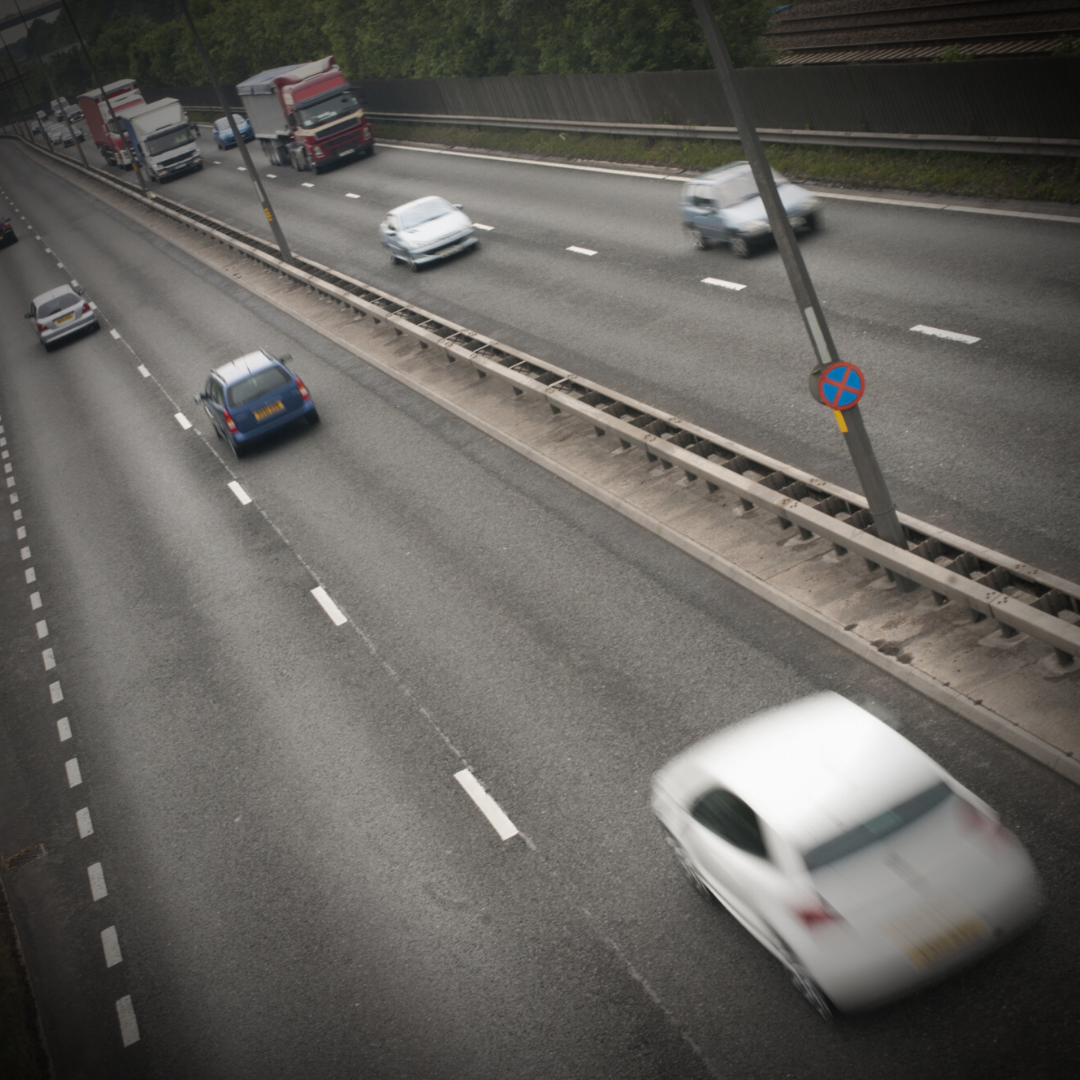
Notes from New AutoMotive
Access our latest blog posts, commentary and monthly Electric Car Count insights
The popularity of petrol is waning
February saw continued growth in the number of electric cars being bought in the UK. 18% of all new cars bought across the UK were fully electric up from 7% of new cars last year. This rapid growth demonstrates the continued popularity of electric cars, while the declining market share and number of petrol cars being sold shows the waning popularity of conventional internal combustion engines.
Just a fad
In a world where 51% of any given group is required to initiate change - we are still a long way away from EVs being the default perception of the automobile. With a current total market share of just 1.1% EV, is the “electric revolution” just a techy fad?
At New AutoMotive, we would like to reframe this narrative.
EV Chargers - do we have enough?
The recent electric car sales boom is the result of growing consumer interest and falling battery costs - all of which has been spurred on by years of supportive government policy. But with another 300,000 electric cars set to hit the roads in 2022, are there enough charge points?
The number of people buying EVs has doubled in the last year
The number of people buying electric cars has doubled in the last year, according to the latest data from New AutoMotive’s Electric Car Count. In January 2022, UK motorists bought 13,000 new electric cars, up from 6,000 in January 2021.
Britain’s First Zero Emissions Zone
This month, Oxfordshire County Council and Oxford City Council will introduce Britain's first Zero Emission Zone (ZEZ) in Oxford. The pilot scheme will start on 28th February 2022 and apply to a limited number of roads in the city centre. Oxford ZEZ represents a radical change compared to most already existing Clean Air Zones (CAZ) across the country.
Will 2022 drive the electric revolution?
2021 has been a watershed moment for EV vehicles, not just in the UK but globally too. Approximately 11.65% of the new car market were EVs.
Due to how fast this sector is developing it is hard to highlight exactly where we will be in 12 months time - but this should be seen as a positive. 2022 will need to not only replicate 2021, but we will need to see a quickening of sales, manufacturing announcements, infrastructure development and other supporting policies to ensure we build on, and accelerate from the progress made last year.
The future of the ICE Car Manufacturer - Valley of Death or Market Domination?
A chart on twitter has divided opinion on how the EV adoption will occur and what it will mean for incumbent manufacturers and new entrants into the automotive market.
It is provocatively labelled the ‘Valley of Death’ for traditional internal combustion engine (ICE) manufacturers who cling too long to their preferred technology, even as EVs start to dominate new sales in key markets such as China, Europe – and now the US.
Year Review & December 2021: Electric Car Count
Welcome to a bumper edition of Electric Car Count, containing a review of 2021 as well as our usual review of the past month’s new car registrations.
EV drivers will just be ‘drivers’ by the end of the decade.
Supported by a coalition including New AutoMotive, EVA England and Octopus Energy I spoke to over 40 EV drivers of different ages and professional backgrounds from all over the UK.
My research showed that people buy and run EVs for a combination of rational and emotional reasons…
The UK Transport Sector and the Kaya Identity: How a maths equation can help your life
Mass electrification of transport, much as mass electrification of lighting, is a signal of energy progress – from the inefficient burning of fuels to the more efficient, cheaper and cleaner use of electricity.
It is analogous to the shift from candles and gas lamps to the incandescent light bulb, and now LEDs.
19% of all new cars were fully electric
Electric cars had their best ever month outside of a lockdown in November 2021, according to the latest data from Electric Car Count. 19% of all new cars in the UK in November were fully electric - almost 1 in five of all new cars. Electric cars continued to be the fastest growing segment of the market, amid declining petrol sales.
COP26: Still much more to do
“We estimate that the portion of the global car market covered by a commitment to phase out petrol and diesel cars has increased by 50%.
There remains more to be done - and we encourage every country that did not sign this commitment, in particular Germany, the USA and China, to set a date to end the sale of polluting cars.”
15% of new cars are electric - second month in a row
October was yet another strong month for electric car registrations in the UK, according to new figures from Electric Car Count, which tracks new car registrations in the UK. October saw electric cars take over 15% of the market for a second month in a row, with a big number of brands now recording large numbers of EV registrations.
Hybrids: Climate Delay via a Dead-End Technology
‘Discourses of climate delay’ pervade current debates on climate action. These discourses accept the existence of climate change, but justify inaction or inadequate efforts. In contemporary discussions on what actions should be taken, by whom and how fast, proponents of climate delay would argue for minimal action or action taken by others.
Still thinking of ‘Geoff’ when you hear ‘EV’?
With just two seats (garden chairs), a top speed of 15.4 mph (slower with the lights on), and a range of just 20 miles, Geoff was a somewhat trailblazing electric car built in 2009 on the BBC’s Top Gear in an attempt to create an electric car that was better than the Riva G-Wiz. But not all electric cars are like Geoff, and people might be surprised at how far you can go on a single charge.
Going electric: a solution to range anxiety?
It turns out that a switch to electric vehicles may be the best way to avoid range anxiety in your car. The current fuel panic gripping the UK highlights a wider truth about human behaviour, and the reality of range anxiety - it also highlights the fragility of the fossil fuel infrastructure we rely on, and the new, much more resilient alternative of electric cars.
30% jump in EV sales, but why?
“September is often a bumper month for EV sales, but even these statistics surprised us. Twice as many people bought electric cars as bought diesel cars, showing the ongoing slump in sales of polluting diesels. In many UK cities - Newcastle, Bristol, London, Oxford, Cambridge and Birmingham, the figures suggest that 1 in 5 cars bought are now fully electric.“
-Ben Nelmes, Head of Policy and Research at New AutoMotive
Global EV dominance: five things to consider
Six million EVs on the road means a lifetime reduction in tail-pipe emissions of over 150 million tonnes to date. With the EV market entering a phase where its impact is getting noticeable, a closer look at the chart reveals at least five key issues that point to how the global EV market may now play out.
Are EVs about to go mainstream?
“August’s figures are yet more evidence that the transition to electric vehicles is gathering pace. The UK will benefit if the government acts now to ensure that the charging infrastructure is rolled out rapidly. This summer, we heard some people suggest that the UK should try to resist the inevitable transition to EVs; doing so would be like building sandcastles against the incoming tide.”
-Ben Nelmes, Head of Policy and Research at New AutoMotive
“You cannot displace horses” - History’s guide to the future of EVs.
As we debate the fine details of the transport transition from internal combustion engines (ICE) to EVs, it is useful to stand back and see if the switch is falling into a predictable pattern, or if history is this time a false steer. Sales of Model T Fords (from 1908 - 1916) and Teslas (from 2012- 2020), in fact do follow an absolute trend that indicates history providing a clue.




















